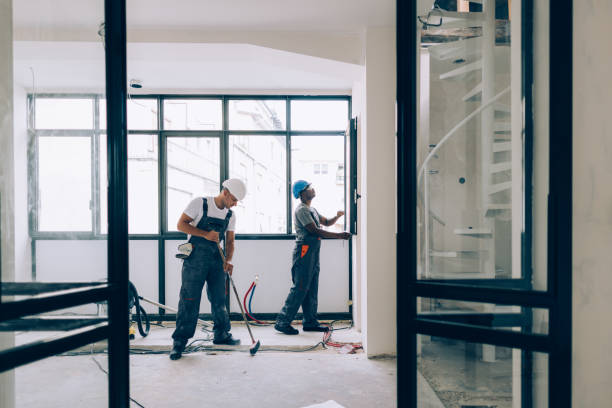Why a Home Improvement Contractor License Matters
Securing a home improvement contractor license is crucial for anyone in the industry. Not only does it enhance your credibility as a professional, but it also establishes trust with your clients and ensures compliance with local and state regulations. Whether you’re just starting your career or want to expand your contracting business, understanding the costs and process of obtaining this license can set you on the path to success.
This guide will explain everything you need to know, including the costs, steps, and resources available, so you can confidently kickstart your licensing process.
Costs of Acquiring a Home Improvement Contractor License
It’s critical to comprehend the associated financial obligations before applying for a home improvement contractor license. Depending on where you live and the kind of work you intend to do, getting a permit can cost different amounts, but here is a broad summary of the costs you should anticipate:
1. Application Fees
- State Licensing Fee: Most states charge a fee for processing your application, typically between $50 and $300.
- Renewal Fee: Your license must be renewed periodically, usually every 1 to 3 years and renewal fees range from $50 to $200.
2. Education and Training Costs
Many states require contractors to complete certain hours in approved training programs. These courses cover construction techniques, safety regulations, business management, and local building codes.
- Cost of Online or Instructor-Led Courses: The price may vary from $100 to $1,000, contingent on the provider.
- Textbooks and Study Materials: Additional costs for course materials may add $50–$200 to your total.
3. Examination Fees
Some states require contractors to pass a licensing exam. This typically involves an additional fee for the test itself.
- Exam Fees: Generally range between $50 and $200.
4. Surety Bond and Insurance
Most states require contractors to secure a surety bond and carry liability insurance. These are meant to protect your clients if the work isn’t completed correctly or under the agreed terms.
- Surety Bond Costs: Depending on your credit history and the bond amount required, expect to pay $100 to $1,000 annually.
- Liability Insurance: Rates often depend on coverage levels, with prices ranging from $400 to $1,500 annually.
5. Other Costs
- Background Check Fee: Some jurisdictions require a background check as part of the licensing procedure, which typically costs between $20 and $50.
- Business Registration Fee: State filing fees may apply if you register as a business entity (LLC, corporation, etc.).
Overall, depending on your location and business size, you should budget between $500 and $3,000 to cover all fees.
Step-by-Step Process for Obtaining a Home Improvement Contractor License
Becoming a licensed home improvement contractor may seem overwhelming initially, but by breaking it into manageable steps, you’ll be better prepared for the road ahead. Below, we detail the typical steps you’ll need to take:
1. Understand the Requirements in Your State
Licensing laws vary by state, so you first need to research the specific requirements for contractors in your area. Check with your local licensing board or Department of Consumer Affairs to find out:
- Whether a license is required for the type of improvements you’re undertaking.
- The minimum qualifications for applicants (e.g., age, work experience).
- Any state-mandated training programs or exams.
2. Complete Required Education or Training
If your state mandates pre-licensing education, enroll in an approved program. This step ensures you understand key topics like construction regulations, local building codes, and workplace safety practices. Some training providers offer flexible online options, which can be helpful for contractors with busy schedules.
3. Submit Your Application
After completing the education requirements, you must gather the necessary documents to submit your license application. This usually includes:
- Proof of completed training (if applicable).
- Evidence of work experience (if required).
- Personal identification.
- Application fee payment.
Check the exact submission process with your state licensing board. While some applications can be submitted online, others may require you to mail physical copies.
4. Pass the Licensing Exam
If your state requires an exam, prepare thoroughly. Topics often include:
- Local building codes and regulations.
- Safety protocols.
- Construction techniques.
- Business management practices.
Most testing centers offer practice exams to help you prepare.
5. Secure a Surety Bond and Insurance
Many licensing boards require surety bonds to ensure contractors fulfill their obligations. You’ll also need liability insurance to cover any potential damages during a project. Reach out to insurance providers for competitive rates and coverage options.
6. Get Your License
Once you’ve completed the requirements and your application has been approved, you’ll be issued your home improvement contractor license. Congratulations! You’re now officially licensed to offer your professional services.
7. Maintain Your License
Licenses must be renewed periodically, so staying on top of renewal deadlines and any continuing education requirements is essential. Maintaining your license demonstrates professionalism and ensures compliance with state regulations.
Helpful Resources and Organizations
The following resources can assist you throughout the licensing process:
1. State Licensing Boards and Departments
Your primary resource for information on licensing requirements will be the Department of Consumer Affairs or your state’s licensing board. Many boards offer detailed guides and downloadable forms on their websites.
2. National Association of Home Builders (NAHB)
The NAHB provides a wealth of contractor resources, including educational opportunities, business tips, and advocacy for industry-related issues.
3. Local Community Colleges and Trade Schools
Many schools offer the education and training courses needed to meet state requirements. Check with your local institutions for details.
4. Surety Bond Providers
Companies like SuretyBonds.com and LanceSurety.com can help you find competitively priced bonds to meet licensing requirements.
5. Professional Associations
Joining associations like the National Association of the Remodeling Industry (NARI) or your local contractor’s association can provide networking opportunities, continuing education, and support.
You can simplify the licensing process by leveraging these resources and gaining valuable industry insights.
Becoming a Licensed Contractor is Worth the Investment
Obtaining a home improvement contractor license NY may require time, effort, and finances, but the rewards far outweigh the initial costs. A license gives you credibility, protects your clients, and ensures you’re legally allowed to operate in your state. Plus, it opens the door for exciting growth opportunities and enables you to establish yourself as a trusted professional in the industry.


